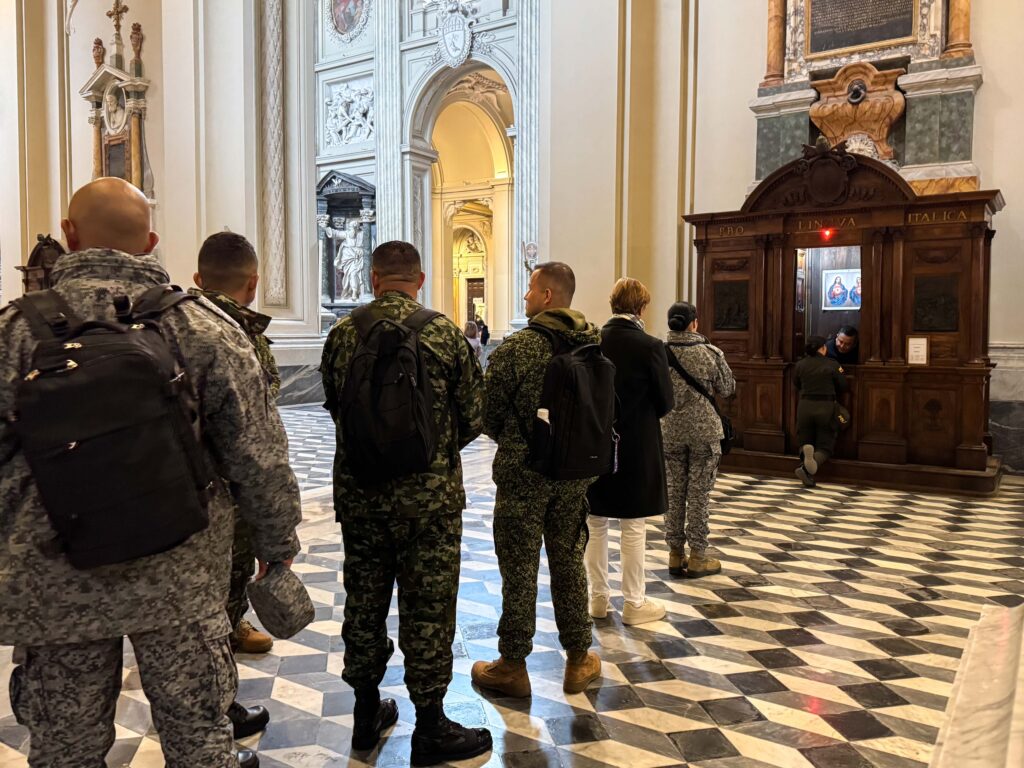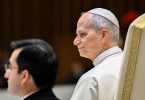
by Cindy Wooden, Catholic News Service
VATICAN CITY (CNS) — A Jubilee year pilgrimage is not a series of tasks to complete in order to reap a reward, but rather a journey to help pilgrims experience God’s mercy and grow stronger in their conviction that Jesus is at their side, said Cardinal Angelo De Donatis.
“Without realizing it, we could live the Jubilee by approaching the Lord as the one who, in the end, ratifies and records what we have accomplished with such dedication,” said the cardinal, who heads the Apostolic Penitentiary, a church court that deals with matters of conscience.
With the temptation to think it is about what individuals do and not God, he said, “the risk is to build, even with good intentions, a Christianity without Christ, a redemption without the Redeemer, a salvation without the Savior.”
The cardinal’s office also regulates the terms and conditions by which special indulgences are granted, including during the Jubilee year. The church describes an indulgence as a remission of the temporal punishment a person is due for their sins.
“Every sin ‘leaves its mark'” even after a person has received forgiveness and absolution through the sacrament of reconciliation, Pope Francis wrote in his document proclaiming the Holy Year. The Catholic Church teaches that the mark of sin is cleansed in purgatory or with an indulgence.
Cardinal De Donatis spoke about the Jubilee, God’s mercy and indulgences March 24 as he opened the Apostolic Penitentiary’s annual course on penance and matters of conscience for priests and seminarians.
He told them that making a Jubilee pilgrimage is not just about fulfilling the requirements for the indulgence, which are: making “a good examination of conscience, visiting a Jubilee church or one of the Holy Doors in Rome, making a good confession,” receiving the Eucharist, “praying in communion with the pope and the whole church,” reciting the Creed and performing an act of charity.
“Living the Jubilee is not about what we are able to do but about entering into an experience of mercy” and being so sure of God’s love and forgiveness that a person knows God is near no matter what happens, the cardinal said.
“The Jubilee could be experienced as a momentary jolt of hope, as a bit of oxygen amid the tragedy of wars, of violence, of evil in the world and of our own disappointments,” he said. But what the Holy Year really is about is leading people “to a firm hope: I hope, we hope because Christ is with me, with us, today, always, until the end of time and his promise will never disappoint us.”
Despite trials and tribulations, he said, the last word “will be had not by death, not by darkness, but by the light of the Risen One who stands beside me here and now.”
Knowing that, he said, also leads to hope for humanity because “we are all pilgrims: the poor, the last, the disappointed and the optimistic, the rich, those who succeed and those who struggle, the exploited and those who suffer evil, those involved in important things and those who struggle to find stable joys, those who are alone and those who are surrounded by affection.”






